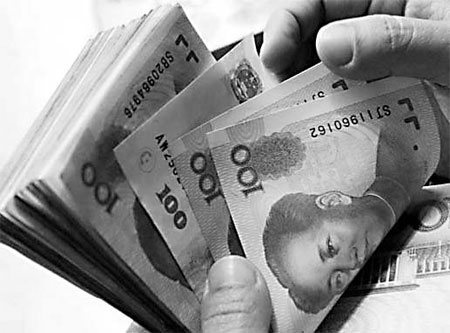


HONG KONG: Chinese authorities' green light for settling trade deals between four Chinese cities and Hong Kong may help strengthen the territory's position as an international financial centre.
Daniel Chan, a senior investment strategist at DBS Bank (Hong Kong), said such a move could make Hong Kong unique compared to other Asian financial centers, such as Tokyo and Singapore.
"Developing a yuan-clearing system in Hong Kong is significant," Chan said.
Huang Huahua, governor of Guangdong province, confirmed last week that the province has applied for central government approval to allow four pilot cities (Guangzhou, Shenzhen, Dongguan and Zhuhai) to use yuan in trade with Hong Kong.
The central government has already drawn up measures for yuan-denominated settlement of trade deals between Hong Kong and the mainland, said Premier Wen Jiabao at the end of the National People's Congress meeting.
"The scheme will be implemented as soon as possible, once it is approved by the State Council," Wen said in a press conference in Beijing on March 13.
Zhou Xiaochuan, governor of the People's Bank of China said in early March that corresponding measures in Hong Kong will soon be approved and released.
Hong Kong has allowed individuals to use yuan for tourism and shopping since 2003, which prompted co-operation between banks on both sides of the border.
He said the People's Bank of China and the Hong Kong Monetary Authority are expected to work out the plan together amid the current corporation framework, instead of setting up a new system for the yuan-settlement.
Hong Kong Financial Secretary John Tsang said that Hong Kong is prepared to develop into a yuan-settlement center.
Tsang expects the plan to increase business in the territory.
Billy Mak, an associate professor at the department of finance and decision science of the Hong Kong Baptist University, said the banking system in Hong Kong is ready to deal with trade settlements in yuan.
"The scheme will not involve many technical problems," Mak said.
Trade between companies in Hong Kong and the mainland is currently cleared mostly in US dollars, which inevitably increases costs, Mak added.
"Using yuan will help companies across the boarder reduce their costs and risks," Mak said.
Chan, a Hong Kong manufacturer who operates a chemical processing factory in the Pearl River Delta region, said businesses with bigger operations on the mainland will get more out of the measures. Such business employ large numbers of staff on both sides of the border and changes in the yuan-Hong Kong dollar exchange rate can eat into their profits.
Staff numbers usually fluctuate according to orders at smaller businesses, such as Chan's, so they won't benefit quite as much, he said.
(China Daily 03/23/2009 page5)













